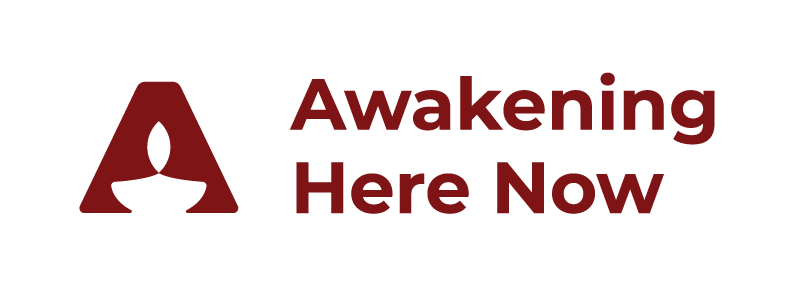Happiness Mantra
Buddhist monk Matthieu Ricard, popularly known as the happiest person on the planet recently gave a speech in Kathmandu on “Neuroscience and Meditation”. A short meditation session at the end of the talk programme was a good tranquilizer for the audience.
That evening after the end of the programme, I got a call from Narayani Rana, one of the participants who wanted to express her impressions during the session. In a stirring voice, she said, “It was one the happiest moments in my life listening to the monk’s speech on meditation. He presented many benefits of meditation on scientific grounds. Words fail to express my happiness and satisfaction!”
Meditation made Matthieu Ricard what he is today. He practiced meditation with renowned Tibetan monks like Dilgo Khentsay Rinpoche and Kangyur Rinpoche for 45 years. He attained peace, awakened to the light of wisdom and eliminated suffering. Now, he is involved in several altruistic activities. He is leading Karuna-Schechen Foundation which works for thousands of poor people in Nepal, India and Bhutan.
Blending his experience of meditation and altruistic campaigns, Matthieu has authored bestselling books such as Happiness, The Art of Meditation, Quantum and the Lotus, Altruism among others. This article attempts to present Matthieu Ricard’s thoughts on happiness, the Buddhist way of meditation and some of his altruistic activities.
There was a time when Matthieu used to sit in meditation for a whole day without getting bored. During that period, Matthieu participated in a brain study on meditation on compassion led by a neuroscientist from the University of Wisconsin, Richard Davidson. During the study, Matthieu’s head was hooked with hundreds of sensors and his mind was remarkably light.
Davidson noticed that when Matthieu was meditating on compassion, his brain produced a level of gamma waves “never reported before in neuroscience literature.” The report says, “The scans also showed excessive activity in his brain’s left prefrontal cortex compared to its right counterpart, allowing him an abnormally large capacity for happiness and a reduced propensity towards negativity.”
What, then, is happiness? We feel pleased when a child smiles, we feel good while having a cup of coffee after a long walk. But these things are too circumstantial to shed light on our lives as a whole. By happiness, Matthieu means “a deep sense of flourishing that arises from an exceptionally healthy mind. This is not a mere pleasurable feeling, a fleeting emotion, or a mood, but an optimal state of being.”
Practicing Buddhist way of meditation is to attain peace first by getting rid of cravings and aversions. When the mind is at peace, there is a possibility to realize the impermanence of things. As true wisdom arises, it is pleasant to see things as they are. Our perspective changes, loving kindness develops and we focus on the suffering of fellow human beings. The more compassionate we become, the more happiness we realize.
When asked how to be happy, Matthieu presents three simple formulae: Stop thinking about the ‘me, me, me’, train your mind like you would train for a marathon and spend 15 minutes a day for thinking happy thoughts. Thinking about oneself all the time is exhausting and stressful and ultimately leads to tension. Instead, if we fill our mind with benevolence or compassion and solidarity, this is a healthy state of mind. If we want to be happy, we should be in a sound mental state.
Another key to happiness is training the mind. Just as people practice running for a marathon, we should train our mind to be happy. Matthieu suggests that meditation is the best method of training our mind. Another key to happiness is thinking happy thoughts on a regular basis. If we nurture happy thoughts for at least fifteen minutes a day, it makes a lot of difference. Often we experience that even the feelings of love and happiness are transitory. However, Matthieu suggests that this practice results in positive mental state for a long duration.
Meditation is the best approach to attain happiness. People are habituated to thinking too much and making fuss of things for no reason. And meditation causes change in this habit. The real significance of meditation is inner transformation through training the mind which is a really exciting adventure.
Meditation is the best approach to attain happiness. People are habituated to thinking too much and making fuss of things for no reason. And meditation causes change in this habit. The real significance of meditation is inner transformation through training the mind which is a really exciting adventure.
While talking about meditation, Matthieu combines Buddhist wisdom with modern psychology to provide the best available philosophy of life and practice. His talk appeals many as he presents his ideas blending the talent of a meditator and a scientist. He never gets tired reminding us that meditation brings change in individuals. To change individuals for better is ultimately to change the world.
In existence, trees give fruits, cows give milk, and the river gives water. Giving or helping others is how existence works. This way, existence rejuvenates itself. If we want to renew ourselves and be happy, we should learn from nature. Matthieu suggests altruism is the best way to be one with nature and be happy.
Altruism is Matthieu’s masterwork and it presents a global vision and insight. He demonstrates how altruism is an essential dimension of our nature that everyone can cultivate and expand. He emphasizes that developing altruistic compassion is the best means for benefiting ourselves and our society.
Philanthropy is the most pragmatic answer to the burning questions of our time. In short term, we can begin caring about the economic condition of the poor; in mid-term, we can proceed supporting social justice and the pursuit of happiness and in long term, we can start caring for future generation, other species and environment. A journey from meditation to happiness and from happiness to altruism is a journey that leads to ultimate fulfilment. [email protected]

